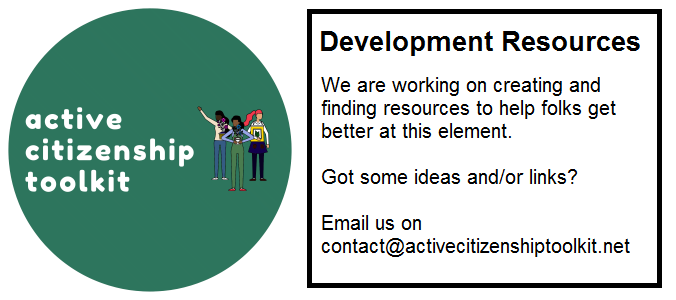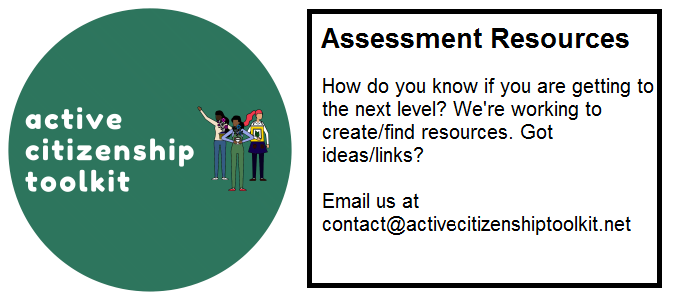Element Descriptor
We often think that the only thing that matters in a movement organisation is how committed someone is to The Cause (whichever one that might be). However, emotions and the ways that they are expressed/repressed/silenced over time is crucial for understanding the lifecycle of a group. Failing to understand these patterns doesn’t mean they don’t exist, just that you are their victim.
Level descriptors
| Novice | Practitioner | Expert | Ninja |
|---|---|---|---|
| You understand how emotions influence the likelihood of recruitment and retention into a group, and into a wider movement. You understand which emotions are contagious, and some of the dynamics of who is allowed to express which emotions, when and how. | You understand the longer term patterns around emotional displays in social movement organisations and social movements more generally, such as Issue Attention Cycles, the emotacyle and the ways emotions can decruit people, leading to organisation collapse and abeyance | You are able to spot the vectors and infectivity of different emotions in affecting how a group is functioning, and how its members are thriving or not. You are able to make plausible scenarios about where it is all heading, and suggestions about how to get to The Good Place. D | From nothing more than a few tweets, facebook posts and some body language/tone of voice in a zoom call, you can make a diagnosis, prognosis and treatment protocol for a group made up of buttoned-up anal retentives. Deanna Troy thinks you are the best empath in Star Fleet |
Element Overview Essay
This is a draft. If something doesn’t make sense, or you see typos, or if you have further ideas, please email us on contact@activecitizenshiptoolkit.net
So, the causes of understanding the role of emotions in groups not being done well is that the prevailing ideologies for want of a better phrase – it’s late and I’m tired – within social movement organisations tend to be around. technocratic bureaucratic reformism or some sort of Messianic 19th century Hegelian dialectic narrative warmed over.
And in both cases understanding the importance of emotions in collective action is just not on the radar. You’ve also got some really regressive, frankly reactionary theories about the way that emotions work and social movements from the functionalist crap in the early 1960s in the States, so emotions also talking about emotions and their influence also undercuts the self image of your standard middle class “I’m a rational actor. Other people are swayed by their anger, their fear, their hope, their love”. sorts of people. And it’s a can of worms, of course, because most of us have one or two emotions which are left unchecked could cause a bit of a mess. So, we’ve adopted let sleeping dogs lie strategy,
Often the consequences of pretending that emotions don’t matter. We’ll look around you look on my works, he pitiful and despair hopes that some emotion we are if not governed by our emotions, enormously influenced by them at a collective level, in small groups in large groups and if we want to perform active citizenship for sustained periods of time and don’t forget, without sustained pressure, you cannot change anything at all. You probably can’t anyway, without sustained pressure. Yeah, good luck with that.
Fixes? Well you’re going to need to do some reading about social psychology, which is the least crap form of psychology, I would argue, leading over as it does into sort of sociology, sociological thinking. There is some good literature on the role of emotions in social movements, political struggles, it’s not all crap. Just, you know, 98% it’s crap.
You need to discuss this in safe spaces with trusted friends and allies, you’re going to need to become more emotional illiterate and see what presses your buttons at an individual and a group level.
And it’s going to be hella hard work.
And unfortunately, we didn’t do this shit 30 years ago. And now we’re on a burning platform.
Development Resources

Assessment Resources

